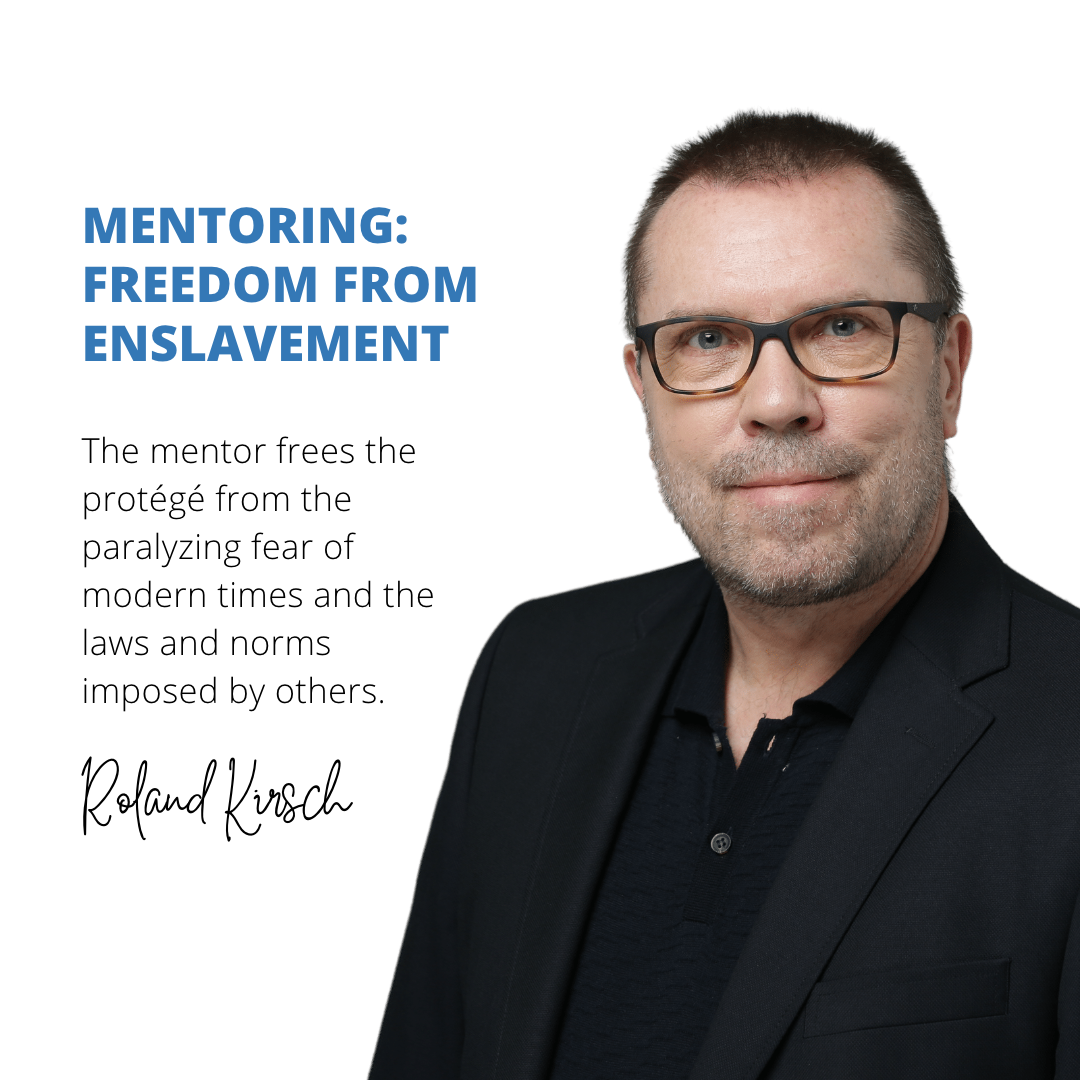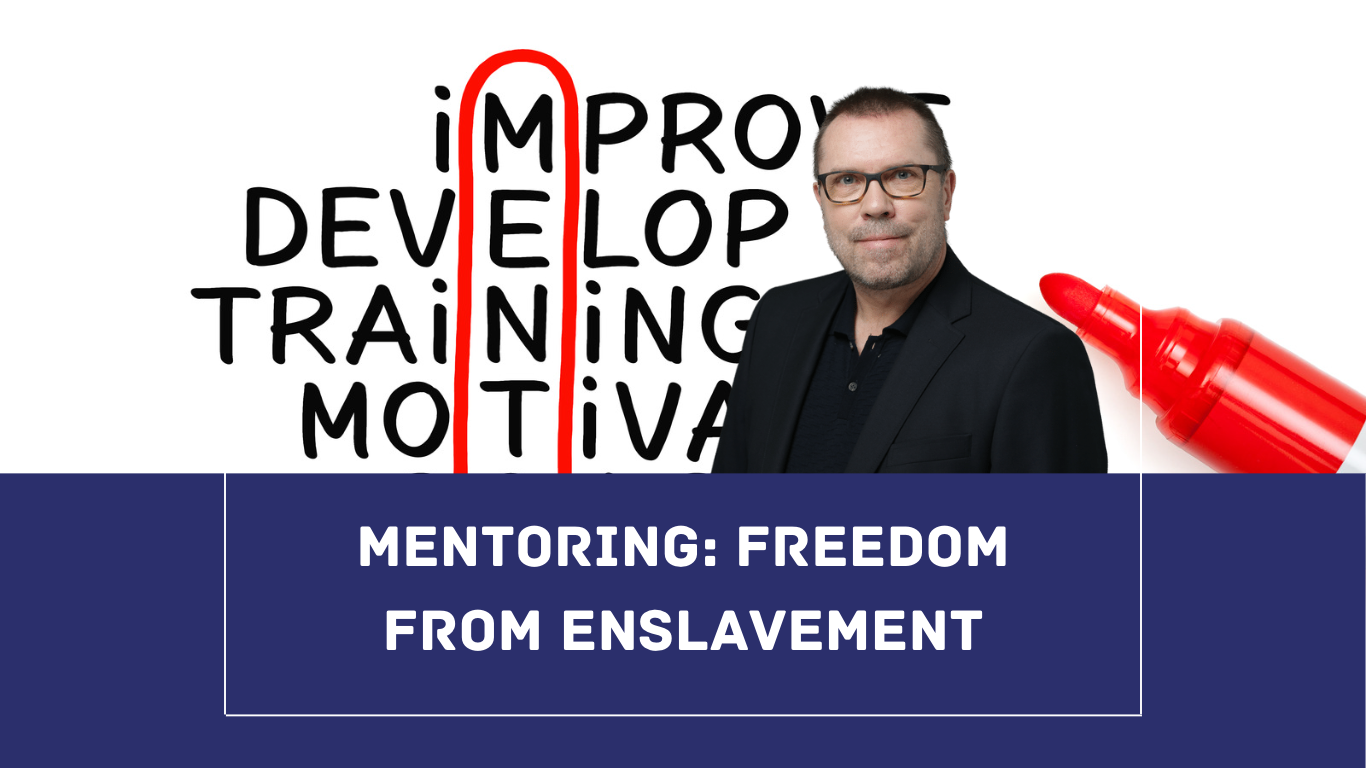Entrepreneurs must give up their subservience, a discussion with Roland Kirsch, entrepreneur from Zurich (Switzerland).
Quite a few entrepreneurs feel powerless. Constant crises create insecurity, unpredictability and thus uncontrollability. The „free entrepreneur“ no longer exists; instead, there are more and more driven people who work on externally determined issues that are ultimately irrelevant to the actual purpose of the company and the desired meaning of life.
Entrepreneurs – prisoners of the system
Entrepreneurs are increasingly caught between government dirigisme, imposed bureaucracy and social customs on the one hand and the demands of employees and business partners on the other. Numerous people feel like „prostitutes“ of a system they cannot escape. Economic success or not.
Entrepreneurs – beyond the perpetual complaint about the state
Entrepreneurs have always complained about the increasing bureaucracy and interference of the state in personal and especially business matters. In recent years, however, the state and its institutions have become almost dominant. It is no longer just about forms and reporting requirements, but about interference in entrepreneurship itself. Businesses, sites, products, supply chains, and technologies are stigmatized or gentrified in the public eye. Corona, climate and energy issues demonstrate state power and corporate impotence that virtually eliminates entrepreneurial freedom. Government regulations now govern forced closures, measures to supposedly protect health, energy use issues, and even corporate governance.
Must own, is modern culture
This is reinforced by lobbyists and activists who moralize corporate behavior in line with societal norms and expectations. „You must be sustainable.“ „You must be fair.“ „You must serve the public interest.“ Contemporary culture must be addressed. Yet these third parties themselves define what is sustainable, fair, and serving the public good. Those who do not adhere to these norms face social exclusion, shitstorms, and retaliation. If repeated often enough, these traditions find expression in ever new rules and regulations.

Entrepreneurs are expected to serve nameless third parties?
On the other hand, companies are expected to expand and constantly create new jobs for employees. Indicators of success are headcount and turnover. After all, without as many employees subject to social security contributions as possible and sufficient company revenues, the state cannot support itself. Therefore, the entrepreneur serves other, nameless third parties and a system. In this system, employees have a multitude of rights, while employers have a multitude of obligations. Working hours, work-life balance, social security contributions, and care obligations are paramount. Performance, adaptability and operational requirements play a secondary role. Employees and HR departments increasingly determine what is acceptable and feasible from a business perspective. Due to the shortage of skilled workers and the increasing complexity of business contexts, their influence is growing.
Coaching often leads to self-sabotage – just forget it
As a result, the entrepreneur is bludgeoned and put into a kind of „system bondage“. The question arises, how can the entrepreneur regain control of his house or how can he escape this bondage? Many seek salvation in coaching, but fail to recognize that coaching is actually a form of facilitative process support. Coaching is usually a combination of asking questions and giving encouragement. But what is a „servant“ to be motivated to do? To perform better in a system that controls him but that he himself cannot control?
Motivation does not seem to be what companies need at the moment. What they need is a means to freedom, a way back to one’s own power and the development of one’s own creative potential. But coaches are rarely able to do that. They talk ABOUT a topic rather than FROM a topic and get their knowledge from books or other sources. Most coaches are not where entrepreneurs could be if they went into business for themselves. Coaching is usually the optimization of a system using psychological techniques.
Mentorship is the path to self-employment
Mentoring goes well beyond coaching. A mentor is someone who speaks from experience, who has already achieved their mentees‘ goals. Mentors are experienced entrepreneurs who have already mastered their mentees‘ challenges. They do not regulate a process, but contribute to the freedom of others. They help on two levels: the outer level, shaped by market rules, entrepreneurial skills and processes, performance indicators, resources and approaches, and the inner level. The inner level, freed from anxiety, helps with emotional control and overcoming powerlessness, paving the way to greater autonomy. Ultimately, it is the inner level that gives courage and strength to break supposed rules and overcome difficulties. A good mentor is a philosopher and profiler. Instead of focusing on the actions and requirements of the system, he asks about the essence of the person who created his company in autonomy.
Conformity to the system Conformity victim
The mentor frees the protégé from the paralyzing fear of modern times and the laws and norms imposed by others. A good mentor broadens the perspective from demotic knowledge, that is, the knowledge and language of the dominated, to hieratic knowledge, that is, the knowledge of the dominators. Coaches and psychologists often use demotic language images. One of the worst language images is the so-called „law of attraction“: if something doesn’t work out, the individual is to blame. Whether a consumer doesn’t pay, a fraudster nearly destroys a business, or an employee contributes to massive underperformance, the demotic rule of coaches is that the disadvantaged person brought it all on themselves. „It has some relevance to you. The mentality is flawed.“ But this is victim mentality, altruism, articulated powerlessness and submission. These and other forms of exploitation have nothing to do with attitude, but with the fact that an externally dictated system fosters such behavior. Those without autonomy become either parasitic optimizers at the expense of others or victims of their conformity to the system.
Exclusion of harmful individuals and alien sets of rules
In reality, it is a matter of radically distancing oneself from those who exploit, hurt and hinder one’s excellence. It is necessary to perform a kind of triage in one’s own life. A mentor facilitates this. With hieratic knowledge, he enables one to recognize such parasites in one’s life and detach from them. Only detachment from toxic forces and people enables success, which today is more about self-determination and personal gain than progress and greatness.
The soft-soap, system-compliant „kumbaya“ of coaches and mentality apologists ultimately leads to the self-sabotage of those being coached. Entrepreneurs lack neither motivation nor the right attitude. They lack the autonomy to escape the system that tyrannizes them. To do so, they need hierarchical knowledge. After all, it is possible to leave at least parts of the system behind, to develop a new culture of entrepreneurial autonomy, and to free oneself from at least some shackles if one stops playing the game dictated by others and instead determines the rules of the game oneself. It’s about becoming a creator again and setting boundaries. Differentiating oneself is the key to success in the modern world.
Dr. Rainer Schreiber discussed with the Zurich entrepreneur Roland Kirsch, who helped many entrepreneurs to take the decisive step. Important topics also concern the issues of relocation and the advantages of different locations that Switzerland has to offer.
About the author Dr. Rainer Schreiber:
Personnel consultant and honorary lecturer Dr. Rainer Schreiber studied economics with a focus on financing, controlling, human resources and training. He works in professional adult education and publishes on the topics of personnel consulting, demographic change and economic policy.
About Roland Kirsch Entrepreneur & Investor:
As a founder, investor, entrepreneur Roland Kirsch lives and manages his economic activities from Zurich in Switzerland. Active as a businessman since the mid-eighties; today his focus is on digital business models and their optimization. Through his successful projects and views, the „entrepreneur and business punk“ encourages international entrepreneurs to embrace change and proactively shape it. He has been actively involved in promising companies with capital and know-how since the mid-nineties. For more information, visit: https://www.geckomoney.com
Contact
Roland Kirsch
Hagenholzstrasse 85 B
8050 Zurich
0041-445458195
anfrage@geckomoney.com
https://www.geckomoney.com
The image rights are held by Roland Kirsch






